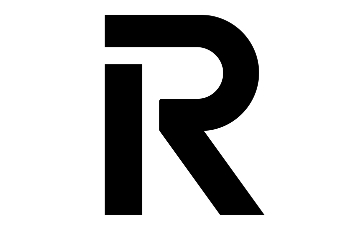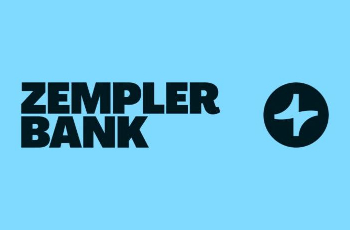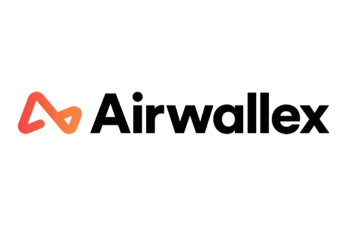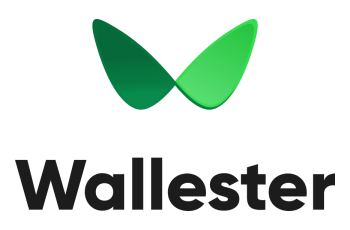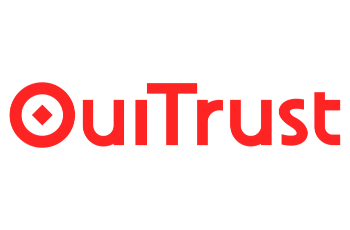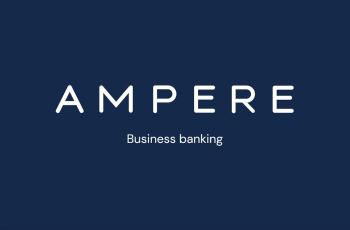Business Bank Accounts
What is a Business Bank Account?
Business bank accounts share many similarities with personal bank accounts, but they have added features to make them suitable for business owners to manage their day-to-day finances.
As they are opened in the name of a company, all the transactions are in the name of the business for tax purposes. Some also have specific business banking features like invoicing tools, payment cards for co-workers, and accounting software integration.
Whether you’re a sole trader or you own a charity or limited company, business bank accounts are vital to keeping your finances and taxes organised, but they also offer some financial incentives and benefits too, like attractive interest rates on your cash balance.
Why should I get a business bank account?
Here are some of the key benefits of business bank accounts:
- Organise your finances - If you’re a sole trader, then you don’t necessarily need to separate your business banking from your personal banking as you’ll submit your tax return each year and declare your income and expenses. However, at the very least, it’s a great way to keep track of your finances and get a comprehensive split of your business expenditure and income and your personal spending. Taking the hassle out of your company’s finances means more time focusing on growing your business.
- Separate your business transactions for your taxes - Setting up a Limited Company can be a more tax-efficient way of earning your self-employed income. HMRC currently charges a flat rate of corporation tax on your company’s profits, and you can then split your personal income between dividends and salary which means you’ll pay less tax in some cases. Separating your company banking from your personal transactions is essential for this, as you can’t accept payments to your limited company directly into your personal account.
- Quick and easy invoicing - Many business bank accounts have invoice features allowing you to quickly send payment requests to your customers without the need to draw up a document or e-mail every time. Quick, simple and professional.
- Integrated accounting software - Your tax reporting will be easier than ever if your business bank account automatically links to your accounting software. Automatically calculate your company’s earnings and expenses without needing to trawl through your statements by linking to accounting software like QuickBooks, Xero and FreeAgent.
- Boost your business credit score - Using a business bank account increases your company’s credit score, especially if you commit to regular expenditures while not abusing your overdraft. A good company credit score will help you to secure business loans and mortgages in the future, as banks can trust your repayment likelihood.
Along with these key attributes, here are some more generic features and advantages of business bank accounts:
- Manage your accounts online or via a mobile app
- Easy deposits and withdrawals
- Bank transfers
- Arranged overdrafts
- Set up standing orders and Direct Debits
- Debit and credit cards
- Company expenses cards
- Interest on your cash balance
- Telephone support and banking options
- Notifications on your phone via your bank app
- Categorised income and expenditure
- Freezing and unfreezing your card via your bank app
What’s the best bank for a business account?
The best business bank account for you depends on the size, structure and jurisdiction of your business along with many other factors concerning how you intend to use the account.
The cheapest business bank account might not offer all the features you need or enough customer support, so compare all the options and consider what you value personally before applying.
We‘ll go through the main things to consider when comparing business bank accounts below.
Do they offer overseas banking for international companies?
If your business deals in multiple countries then you want a bank account tailored to overseas banking.
Some business bank accounts are only eligible to UK businesses that only operate in the UK, so you’ll be instantly rejected.
Other business bank accounts facilitate overseas transactions but only as an added feature, and they aren’t necessarily designed for this purpose. For example, they might charge highly for overseas withdrawals and transactions even though they do facilitate them.
An account specifically designed for overseas banking might be the solution. It might be more expensive annually but could save you money in the long term on the extra administration charges you'll avoid paying.
How good are their customer service ratings?
Our finances are important to us. When things go wrong with our money, it can provoke emotional reactions in us like few other things can. This is why specialist support from people you can trust is so important to banking customer service.
If you have a business finance issue, you want it resolved quickly and efficiently before it starts to snowball into more problems, like having your cards frozen or going into your overdraft when you shouldn’t need to and facing extra charges.
Here are our top 4 customer service features to look for in business bank accounts:
- How good are their customer reviews and satisfaction ratings? Have they won any awards or nominations? Review sites like Google Reviews and Trust Pilot are a good place to start looking.
- Do they offer live chat, e-mail and telephone support options?
- Do they provide 24/7 support? This is especially relevant if you’re accounting for international time differences.
- Do they have branches for a face-to-face service? Remember that branches are expensive for banks to run so you might be paying more for this type of support.
On the other hand, customer service usually comes at a price.
Companies need to invest money and resources into training their specialist support teams team and maintaining staff numbers to keep up with demand. If you’re confident that you don’t need these services then you might find cheaper alternatives.
What are the charges to open your business bank account?
Your business banking fees are one of the most important topics of consideration. With company bank accounts, there are two main ways in which you’ll be charged:
Monthly or annual charge
Business bank accounts often apply a monthly or annual charge to your account for a fixed amount.
They’ll often take lower or nil charges for transactions to compensate for this, so it could be the best account for you if you intend to make regular transactions.
If your account is relatively idle, though, it might be more expensive.
Transaction fees
Some business bank accounts offer their account as free of fixed, ongoing charges, but instead take fees on transactions like transfers and cash withdrawals.
This is probably a cheaper option if you won’t be actively using your account very much.
Other fees
It’s worth remembering that some accounts have discounted or free trial periods you can benefit from, whereas other accounts might charge you for opening your account or make other, ad hoc charges you’re not expecting.
Remember, you can find all your charges detailed in the terms and conditions of your business bank account.
What type of account is best for a small business?
Some business bank accounts have a minimum threshold that rules out small businesses, while others welcome small business applications and have features to suit their needs.
As a small or new business owner you might not have a good business credit score yet, or have many previous years of tax returns to evidence your company activity with.
Some providers bypass these initial vetting checks and accept all applicants with basic ID documents and verified business names, so these accounts will be more likely to accept you.
Business Banking FAQs
How much money do I need for a business bank account?
Most business bank accounts don’t have a minimum balance requirement. However, some have a maximum balance limit of £50k or £100k, for example.
Can you be denied a business bank account?
You could be denied a business bank account for a few reasons:
- You’re not a UK resident
- You’re under 18
- Your business has a poor credit rating
- You can’t prove your identity or your business registration
- Other administrative issues
Most of the time these issues are easy to resolve, but you might want to consider using a bank that advertises quick applications as they’re likely to do less vetting with regards to credit checks and business verifications.
What banks pay you to open a business account?
Some accounts reward you with cashback on your spending, so look out for this term when you’re comparing business bank accounts.
How quickly can I open a business bank account?
You can open a business bank account in as little as 5 minutes. Some providers are quicker than others due to the business and personal information they require from you.
How do I open a business bank account?
The easiest way to open a business bank account is online. Many providers allow you to submit any documents electronically to speed up the process too.
Are business bank accounts protected by the Financial Services Compensation Scheme?
Yes, typical business bank accounts are covered for up to £85,000 through the FCSC. If your bank were to go into liquidation, you are covered for this amount.

